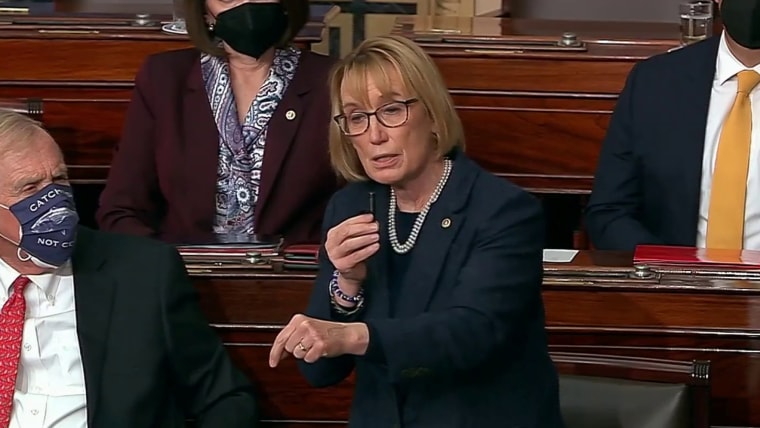As a candidate in 2020, Joe Biden made an important vow ahead of the South Carolina presidential primary: If elected president, he intended to nominate a Black woman to serve on the Supreme Court. The commitment was well received — the Delaware Democrat won the crucial primary soon after — and Biden's pledge did not play an especially big role in the general election.
But now that Justice Stephen Breyer is retiring, and the president is prepared to follow through on his campaign promise, Republicans have rediscovered their apparent outrage.
Republican Sen. Roger Wicker of Mississippi, for example, complained that Biden's nominee will be "the beneficiary" of "affirmative racial discrimination," adding that as-yet-unselected nominee "will probably not get a single Republican vote."
Another Senate Republican, Maine's Susan Collins, added yesterday that Biden has handled the matter in a "clumsy" way — I have no idea what's clumsy about a president promising to honor a campaign commitment — before trying to put the matter in some historical context. Asked specifically about then-candidate Ronald Reagan making a similar vow in 1980, Collins said:
"I've looked at what was done in both cases. And what President Biden did was as a candidate, make this pledge. And that helped politicize the entire nomination process. What President Reagan said is, as one of his Supreme Court justices, he would like to appoint a woman. And he appointed a highly qualified one in Sandra Day O'Connor."
I'm glad Collins "looked at what was done in both cases," but perhaps she didn't look closely enough.
A few weeks before Election Day 1980, Reagan was favored to win, but he was struggling a bit with women voters. There was no great mystery as to why: The Republican was an opponent of the Equal Rights Amendment, and he had a record of appointing men almost exclusively to key positions of power during his terms as governor of California.
And so, eager to narrow the gender gap, Reagan made an announcement on Oct. 15, 1980: He pledged to name a woman to "one of the first Supreme Court vacancies in my administration." The future president added, "It is time for a woman to sit among our highest jurists."
Four decades later, Biden made a similar promise, though the Democrat announced plans to nominate a Black woman to the high court.
Reagan was a candidate; Biden was a candidate. Reagan made a campaign promise; Biden made a campaign promise. Reagan followed through on his vow; Biden is following through on his vow.
But Collins thinks they're different because Biden has been "clumsy" — I still don't know what that means in this context — and because the Democratic president "helped politicize" the process by doing the same thing Reagan did 42 years ago. (If Collins really wants to talk about a politicized process, I might recommend introducing her to Senate Minority Leader Mitch McConnell.)
There are, of course, related examples from modern history. When George H.W. Bush tapped Clarence Thomas to succeed Thurgood Marshall, the then-president said Thomas' race was irrelevant, but that's very difficult to believe. When Donald Trump nominated Amy Coney Barrett to succeed Ruth Bader Ginsburg, gender considerations were also relevant.
A Washington Post analysis added last week:
The truth is that politics — partisan, demographic, regional — has long played a role in Supreme Court nominations. Dwight D. Eisenhower chose William J. Brennan Jr. in part because he thought a Catholic Democrat from the Northeast would play well with voters in the election just a few weeks away. Reagan was so taken with the notion of naming the first Italian American justice that he opted for Antonin Scalia over Robert H. Bork in 1986. Somehow, none of these prompted the kind of aggrieved bristling that has erupted in the aftermath of Breyer's announcement that he plans to retire at the end of the current term. Why might that be?
I'll leave it to Biden's GOP critics to answer that question, though I can't wait to hear their answers.

